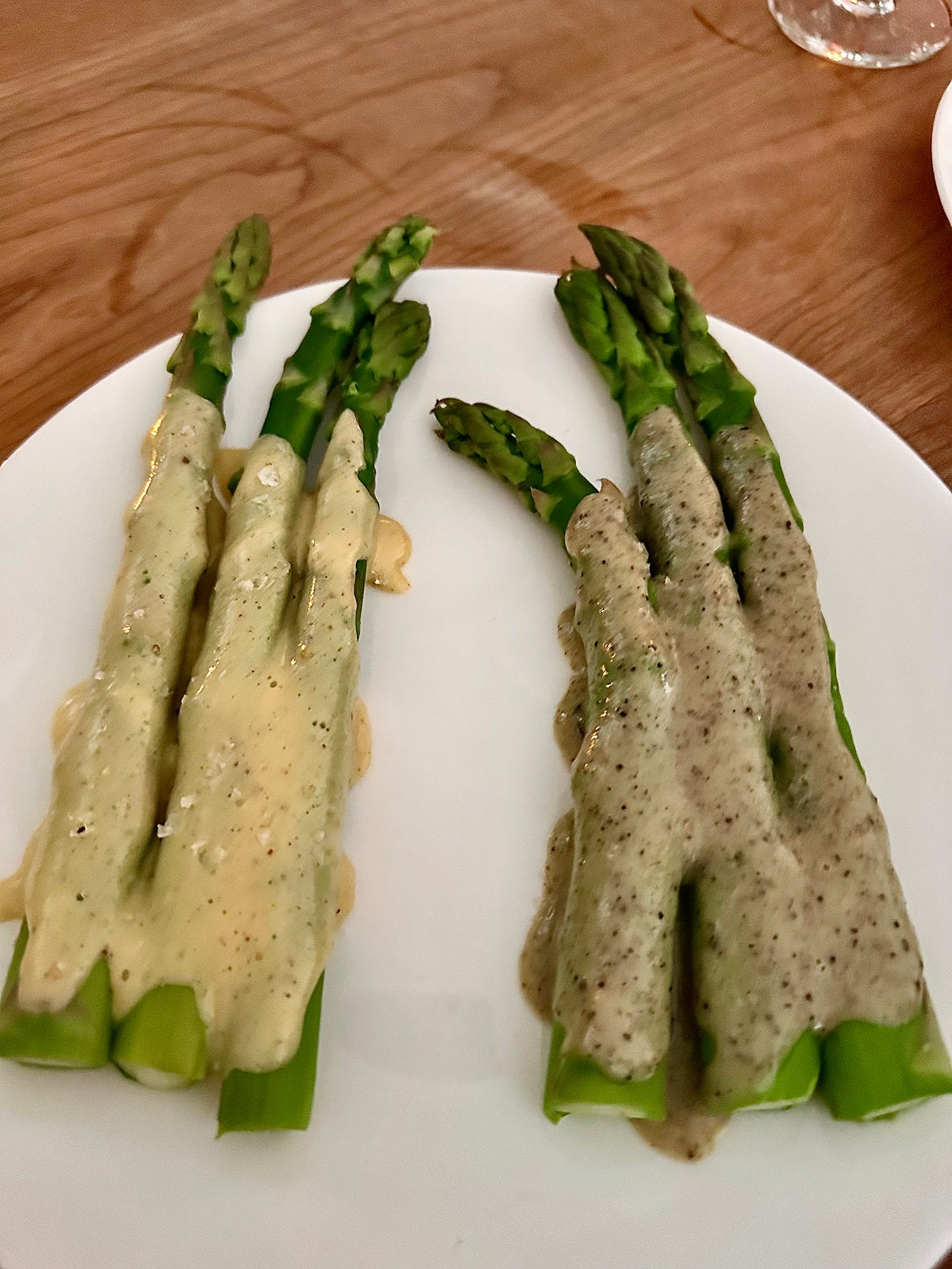A French restaurant? On The Taste Bud? Groundbreaking.
Seriously, I know I write about French cuisine a lot. I eat what I love, or what I think I’ll love, and I write about it. C’est la vie. But Manhattan hardly needed another bistro with red banquettes serving steak frites — when they’re good, they’re great, but a recent mediocre meal at such a place reminded me that they’re not always good. So Zimmi’s is a welcome change of pace and a welcome bit of diversity within the French dining scene in NYC. At Maxime Pradié's cozy new restaurant, located on a picturesque corner of Bedford Street, you won’t find escargot and crème brûlée, nor will you find oak paneling and dim lighting. The space is light and airy; brown checked tablecloths and wooden banquettes and chairs suggest a more rural sensibility than one finds at the gilded temples to Parisian glamour all over the city. Appropriate, given that Zimmi’s is a different kind of French restaurant; taking inspiration from Pradié’s childhood summers spent in the South of France, the restaurant boasts a small, curated menu of Provençal cuisine.
A generous portion of crusty sourdough bread and good salted butter started the meal on the right note, prefiguring the kind of cooking we were in for: exceptional and a bit rustic. We split a green salad, the asparagus two ways, and both pastas. The crisp, fresh lettuces, sprinkled with toasted hazelnuts and tossed in a light vinaigrette, made for a great prelude to the pastas. The first-of-the-season asparagus was thick and robust, steamed to the right point between softness and crispness; half was topped with a truffle saboyan, while the other half was topped with a creamy hazelnut vinaigrette. Both sauces were delicious; I accused my fiancé of heresy when he began to mix them, only to have our server affirm his unorthodox ways. Indeed, they played well together. This dish was like a taste of spring, appropriate for the unseasonably warm day we visited the restaurant.
The pastas were equally well-crafted. For starters, the pasta itself in both dishes was cooked properly, which should be the minimum requirement but sadly can’t always be counted on. And then the pesto — oh, the pesto. For years I have searched the city for handmade pasta with fresh basil pesto as good as the one my mother prepared from her garden every summer when I was growing up. This venture has often been fruitless; good pesto requires a delicate balance of ingredients, the addition of cream is an instant disqualifier, and before I visited Zimmi’s, only Jody Williams and Rita Sodi had hit the mark with their summer pesto pastas at Via Carota and I Sodi. I’m glad to be able to add Zimmi’s pasta davia to the list. Their twist on the classic Ligurian dish was an expert continuation of the theme of green and springy; the pesto was smooth and easy while still packing a punch of flavor, with the basil, garlic, parmesan, and nuts all in balance. (I was grateful for the sourdough bread we had to sop up the extra pesto; it was that good.) Snow peas and beans added some textural interest and additional freshness, and the addition of vegetables and a bit of protein convinced me that this was a virtuous meal. The pastasciutta was heartier, its sage-spiked saucy chicken ragout incredibly tender and flavorful thanks to the use of offal. 2 for 2 is an impressive showing for pasta; I will eagerly return to sample whatever new pasta creations are added when they inevitably update the menu with the changing of the seasons.
We finished the meal with their handmade triple vanilla ice cream, which indeed featured a very intense and delicious vanilla flavor that made me feel vindicated as a forever preacher of the vanilla gospel. Brown butter shortbread cookies served on the side were a bonus treat, further underscoring the dessert’s warm, sweet, comforting flavors. Revolutionary it was not, nor should it have been. Such is the quiet success of the Zimmi’s menu.
At Zimmi’s, Provençal cooking is done well. It’s homey, and may make you reminisce about your French grandmother’s cooking even if you don’t have a French grandmother. But make no mistake; the vibes may be rustic, but the food is executed with the culinary precision and expertise that should be required of any New York restaurant. And in a fevered dining scene where oversalted tartare and bland chicken served in a swanky atmosphere somehow merit an impossible reservation, French cuisine that is as good as it is unpretentious is a veritable breath of fresh air.
Pricing: plates of varying sizes, $16-$45


